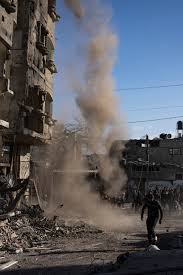
Breaking News
 Robot metabolism: The next evolution of our overlords?
Robot metabolism: The next evolution of our overlords?
 Trump's $1 trillion AI data center boom strains Texas grid -- nuclear power eyed as solution
Trump's $1 trillion AI data center boom strains Texas grid -- nuclear power eyed as solution
 OpenAI ChatGPT Agent for Tool Use, Shopping and Other Activity
OpenAI ChatGPT Agent for Tool Use, Shopping and Other Activity
 INSIDIOUS ISRAELI SCIENTISTS design "Black Death" mutant plague mRNA injections...
INSIDIOUS ISRAELI SCIENTISTS design "Black Death" mutant plague mRNA injections...
Top Tech News
 The Wearables Trap: How the Government Plans to Monitor, Score, and Control You
The Wearables Trap: How the Government Plans to Monitor, Score, and Control You
 The Streetwing: a flying car for true adventure seekers
The Streetwing: a flying car for true adventure seekers
Magic mushrooms may hold the secret to longevity: Psilocybin extends lifespan by 57%...
 Unitree G1 vs Boston Dynamics Atlas vs Optimus Gen 2 Robot– Who Wins?
Unitree G1 vs Boston Dynamics Atlas vs Optimus Gen 2 Robot– Who Wins?
 LFP Battery Fire Safety: What You NEED to Know
LFP Battery Fire Safety: What You NEED to Know
 Final Summer Solar Panel Test: Bifacial Optimization. Save Money w/ These Results!
Final Summer Solar Panel Test: Bifacial Optimization. Save Money w/ These Results!
 MEDICAL MIRACLE IN JAPAN: Paralyzed Man Stands Again After Revolutionary Stem Cell Treatment!
MEDICAL MIRACLE IN JAPAN: Paralyzed Man Stands Again After Revolutionary Stem Cell Treatment!
 Insulator Becomes Conducting Semiconductor And Could Make Superelastic Silicone Solar Panels
Insulator Becomes Conducting Semiconductor And Could Make Superelastic Silicone Solar Panels
 Slate Truck's Under $20,000 Price Tag Just Became A Political Casualty
Slate Truck's Under $20,000 Price Tag Just Became A Political Casualty
 Wisdom Teeth Contain Unique Stem Cell That Can Form Cartilage, Neurons, and Heart Tissue
Wisdom Teeth Contain Unique Stem Cell That Can Form Cartilage, Neurons, and Heart Tissue
Israel isn't just killing Palestinians seeking food aid. It's killing people waiting in line

On Sunday, Israel bombed a water distribution point in the central Gaza Strip, as dozens of civilians, mostly women and children, waited in line for water. Twelve people were killed, eight of them children. It was not the first time.
Hungry, thirsty, and desperate for some relief, Sha'da Abu Jabal, 36, and her six-year-old son Ahmad headed to a water distribution point in the Nuseirat refugee camp in the central Gaza Strip on Sunday, July 13. Each carried a jerrycan, hoping to return to their displacement center with clean drinking water.
The mother and young son joined a long line of people waiting their turn, when suddenly the Israeli army bombed the distribution point, killing twelve people, including eight children, and injuring more than twenty others. Most of them were women and children, due to the fact that in Gaza, survival now divides families: men go out seeking food under bullets, and women and children go out seeking water.
Sha'da and her son miraculously survived the strike and quickly made their way back to the displacement center. They were spared from death, but were still without water. Like thousands of other families in Gaza, their struggle with intense thirst continued, due to severe water shortages as a result of Israel's siege on the strip.
"We don't know what exactly we're supposed to face in this war," Sha'da says. "Are we up against warplanes and death? Or hunger and starvation? Or thirst and the lack of water?"
"Israel has provided us with every possible path to death. We can no longer bear it. And if we adults can endure, how do we look at our children, watching them cry out in thirst when we can't even give them a sip of water? What are we supposed to do to survive this war?", she asked.
Israel is systematically destroying Gaza's water infrastructure
Sunday's attack on people lining up for water was not the first attack by the Israeli army on hungry and thirsty civilians in Gaza. Following the massacre, Gaza's Government Media Office issued a detailed statement indicating that the Israeli military has targeted 112 sites distributing fresh water since the Israeli genocide began in 2023, resulting in massacres of hundreds of civilians—mostly children—who were trying to get drinking water.
The Gaza Strip's water supply depends on three primary sources: groundwater, water supplied directly from Israel through the national water company (Mekorot), and central desalination plants that belong to the Coastal Municipality Water Utility in Gaza.
According to the statement, Israeli forces have deliberately destroyed 720 water wells, putting them out of service and depriving more than 1.25 million people of access to clean water. Israel has also blocked the entry of 12 million liters of fuel each month—fuel needed to run even the minimum number of water wells, sewage treatment plants, garbage collection vehicles, and other critical sectors related to water and sanitation.



